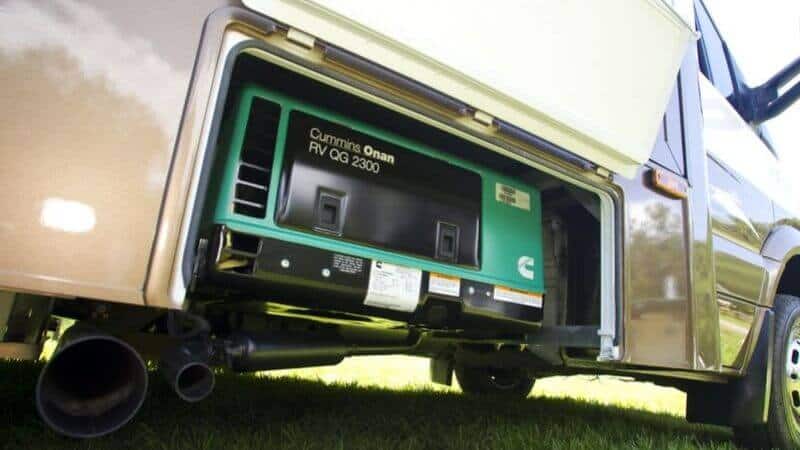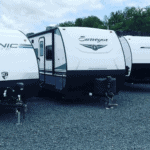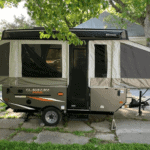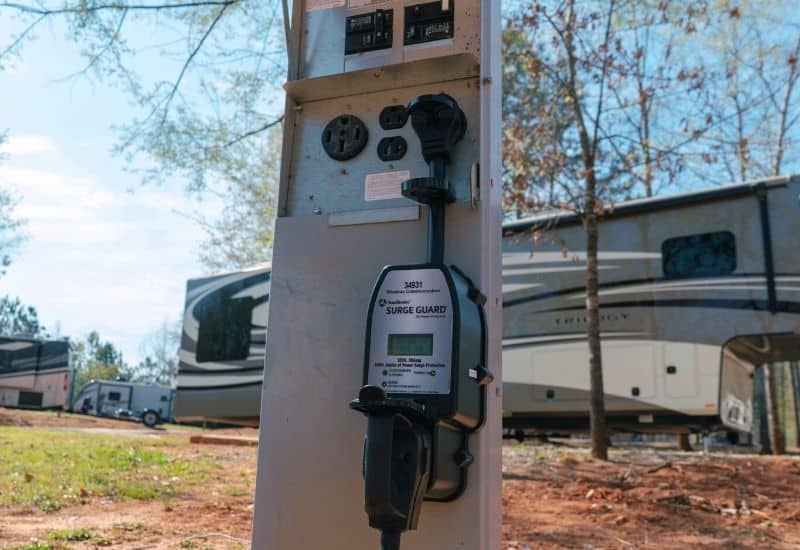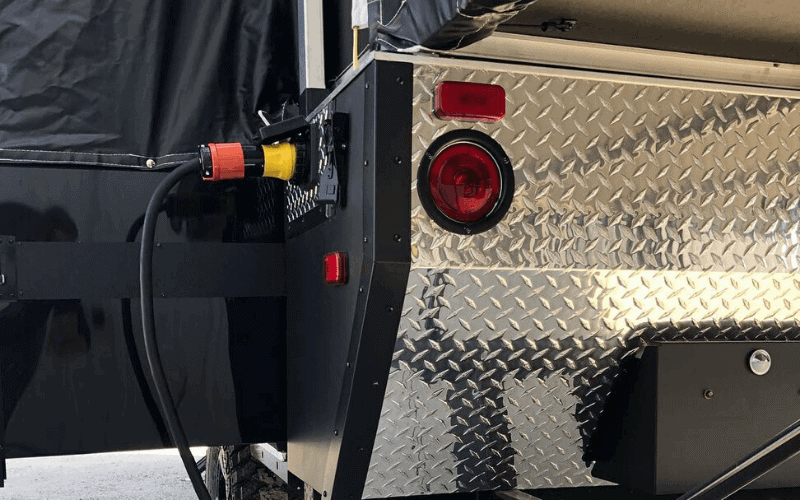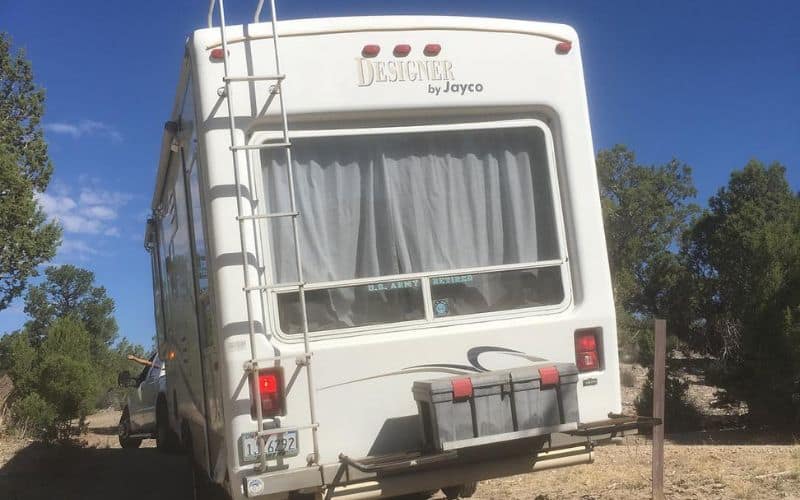For some RVs and motorhomes, in particular, the generator is the life’s blood of great vacation.
It provides you with DC power which passes through a special converter, changing it into the AC that the RV appliances use.
However, when you’re driving the appliances need to run on electricity from the onboard batteries.
If the driver ahead of you is long, it might drain the batteries dangerously low.
So, can you run a generator while driving? The short answer here is that yes you can technically run a gasoline-fueled generator while driving. There are no rules of the road that specifically state you can’t. Yet there are some safety concerns and other things you need to take into account along the way.
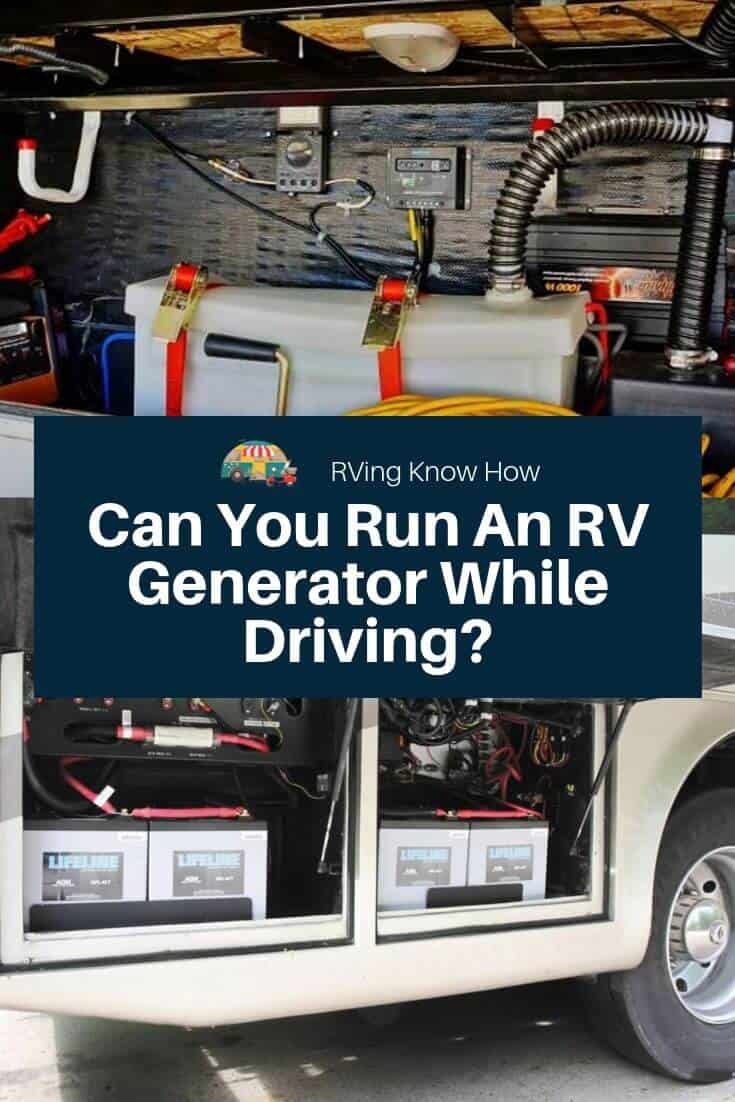
Is It Safe To Run Your RV’s Generator While Driving?
If we are talking about an onboard gasoline-fueled RV generator that was professionally installed to code in a motorhome, then from a technical standpoint it is safe.
If your generator is propane-fueled, then there are certain states and regions that may have laws prohibiting it.
It is also illegal to pull up to a gas station with an active propane fire on board.
So, if you are running your RV generator on propane, in a state or province where it’s legal to burn propane on the road, you will still need to pull over, turn off the propane generator, and let it cool down for a minute or two before pulling into the service station.
If a law enforcement officer, or the gas station attendant notices the propane generator running, you could be facing a major fine.
Not to mention it truly is dangerous to have any open flame at the gas pumps.
In the case of a gasoline generator, if it the same gasoline from the RV gas tank, then you will be just fine.
However, if it’s a secondary or aftermarket generator with its own fuel tank, you will need to turn the generator off before refueling, just like how you should never leave your vehicle running at a gas pump.
You also need to bear in mind that generators can be prone to the same static electricity issues that gasoline-fueled vehicles are.
Chances are you’ve seen a video or two on the internet where a static spark from someone’s hand ignited the gasoline at a pump.
So, always make sure to touch a grounded piece of metal before filling up the tank, especially if the gasoline generator is still running
Can A Generator Run The RV Out Of Gasoline?
As I mentioned earlier, there are some motorhomes where the gasoline generator runs off the same gasoline tank as the RV’s engine.
With most modern-day models, there is a safety feature that automatically cuts off the generator when the tank dips to one quarter. This ensures that the generator itself cannot leave you stranded.
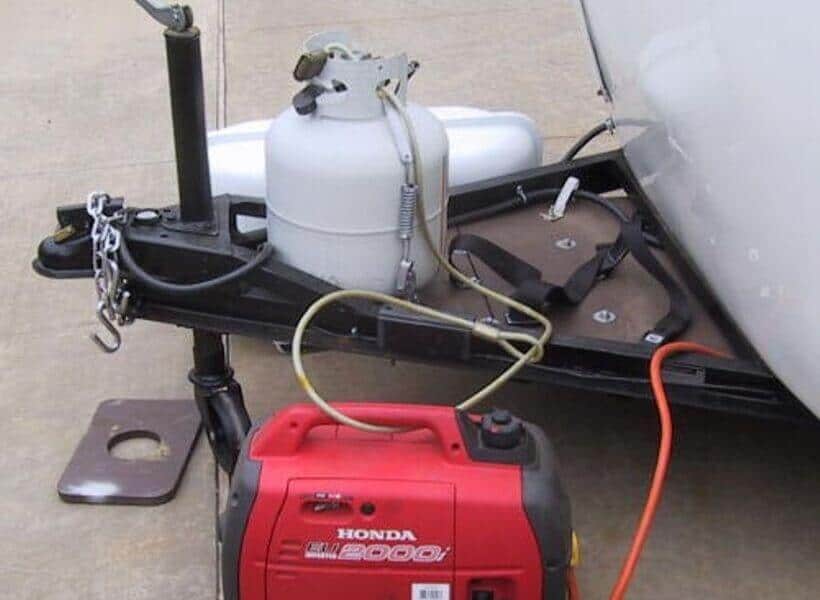
It’s also worth bearing in mind that in older RV’s this feature may not have been installed.
Some also suffer from debris or tank varnish, which can be sucked into the fuel line of the motorhome’s engine, or the generator.
If your motorhome is more than say 15 years old, you should avoid letting it get down to a quarter tank, and perhaps add some fuel conditioners once a month. When winterizing, always make sure to add fuel stabilizer.
Will My Motorhome’s MPG Be Affected While Running The RV’s On-Board Generator?
Many modern-day motorhomes with an onboard gasoline generator will share the fuel tank with the motorhome’s engine.
When both are drawing fuel at the same time, it will not affect the engine’s MPG.
However, your fuel tank will run low faster. For most generator setups this equates to roughly half a gallon of gas for every hour your generator is running.
Is It Safe To Run A Generator In A Travel Trailer Or Camper?
This is where the issue moves into the safety gray area. Legally you can’t ride in a travel trailer, toy hauler, or any kind of tow-behind trailer while it’s underway.
If you have batteries that are low and need to be charged, you might be tempted to use a secondary or aftermarket gasoline generator to try to recharge them.
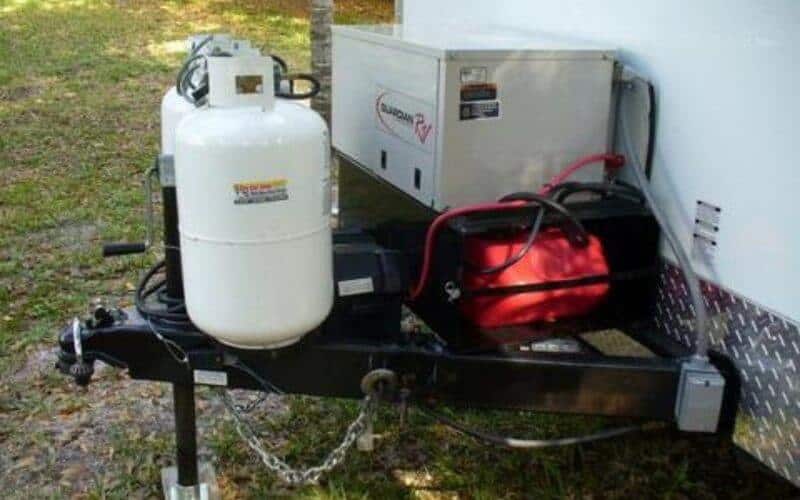
It sounds pretty simple. You secure the generator, fire it up. Connect a smart charger to one of the outlets and connect the battery.
Set up like this a 12 Volt battery that is at 70% or 80% charge will reach 100% in about two to three hours.
If you ratchet strap the generator down, and you secure the batteries in a tray, chances are you will be just fine.
I met someone once on the side of the road who thought just that. The reason I met him, was because the back of his trailer was on fire, after going over a bump that disconnected something in the charger, and a small fire of some sort got to his generator’s fuel tank.
I met another individual at a campground who managed to successfully charge his batteries in the back of his travel trailer, with a generator.
Only the exhaust fumes from the gasoline generator’s motor were terrible. Two days later, with the windows open, you could still catch a whiff of two-cycle oil.
The bottom-line is don’t try to run a secondary generator in an enclosed space like a travel trailer. The risks are just too great.
If you really are in a pinch and you need to run a secondary generator to charge up your travel trailer’s 12 Volt batteries and you have a pickup truck, you might have an option.
You’ll need to ratchet strap the generator in place, making sure the exhaust port has room to vent, and the air intake is not blocked. Then secure the batteries and the charger.
This will allow you to keep an eye on the generator and batteries. If you go over a bump or take a hard corner too fast and something happens, you can always pull over, hop out, and take care of it before the problem gets worse!
Do I Need To Run The RV Generator While Driving?
There are several reasons why you might want to run your RV generator while driving. Especially in a motorhome with a rooftop AC, electric refrigerator and water heater.
If you have a long drive ahead of you on a hot day, you could get to your destination to find a stale fridge, tepid water in the shower, and a boiling hot interior that takes all night to finally cool down.
With most motorhomes, the dash AC just isn’t strong enough to keep the full interior.
If you aren’t plugged into a shore power source, the rooftop AC may need to run off the power stored in the onboard 12 Volt Battery System.
Alternative Ways To Power Appliances Or Charge Batteries While Driving?
If you are uncomfortable with running your motorhome’s generator while you drive down the road, or you have a travel trailer and you don’t want to risk charging your batteries in an enclosed travel trailer, there are some things you can do to augment your 12 Volt batteries or help charge them up.
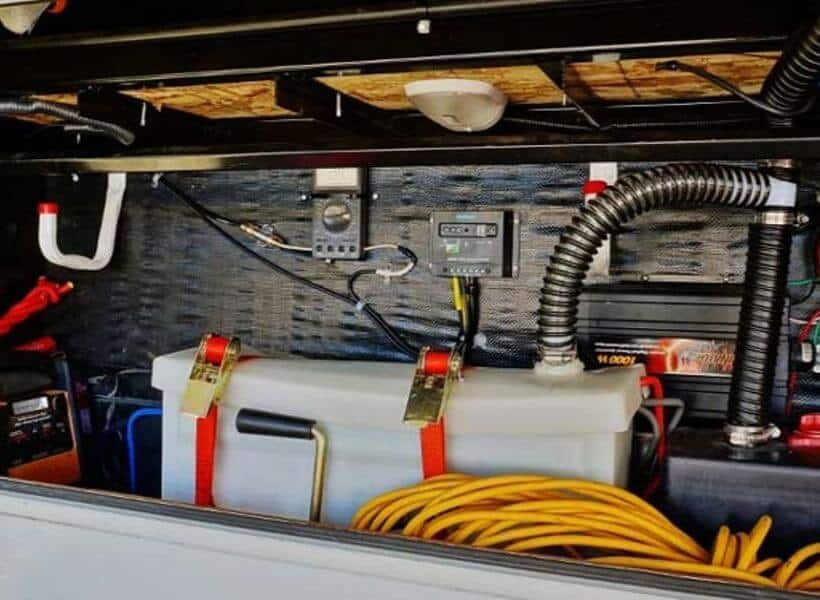
The solar panels sold at the retail level generate the same DC charge as your 12 Volt batteries.
Setting one or two up in a south-facing the window for a long drive won’t necessarily top up the charge in a large 12 Volt battery. However, it will reduce the rate at which they are drained.
You could also try turning off your refrigerator and keeping it sealed. Most modern RV refrigerators are insulated well enough that they won’t lose more than a degree or two over the course of three to four hours.
You might be tempted to buy a retail level wind generator. After-all at full bore maximum wind-speed, they are rated to produce a nice amount of wattage.
Unfortunately, they do have a maximum speed, which is far under the speed you drive on the highway. Chance are if you try it you will be left with damaged bits of plastic.

